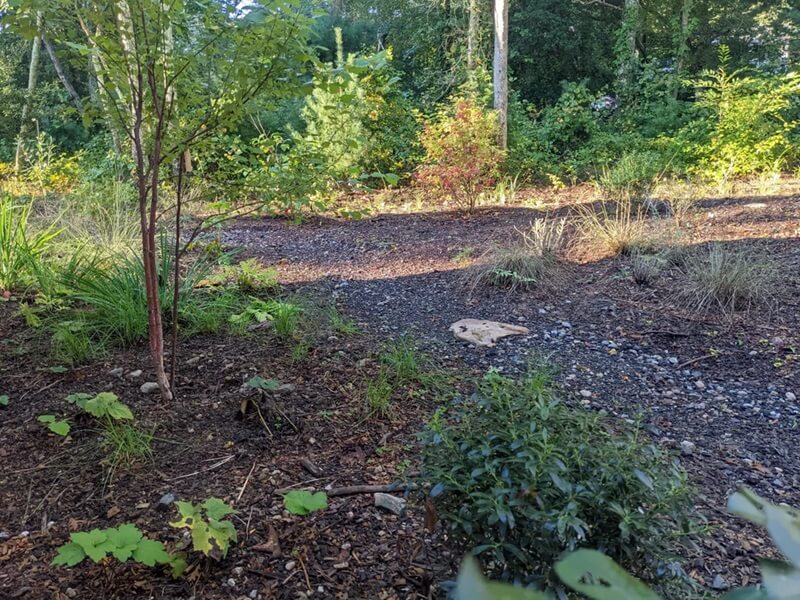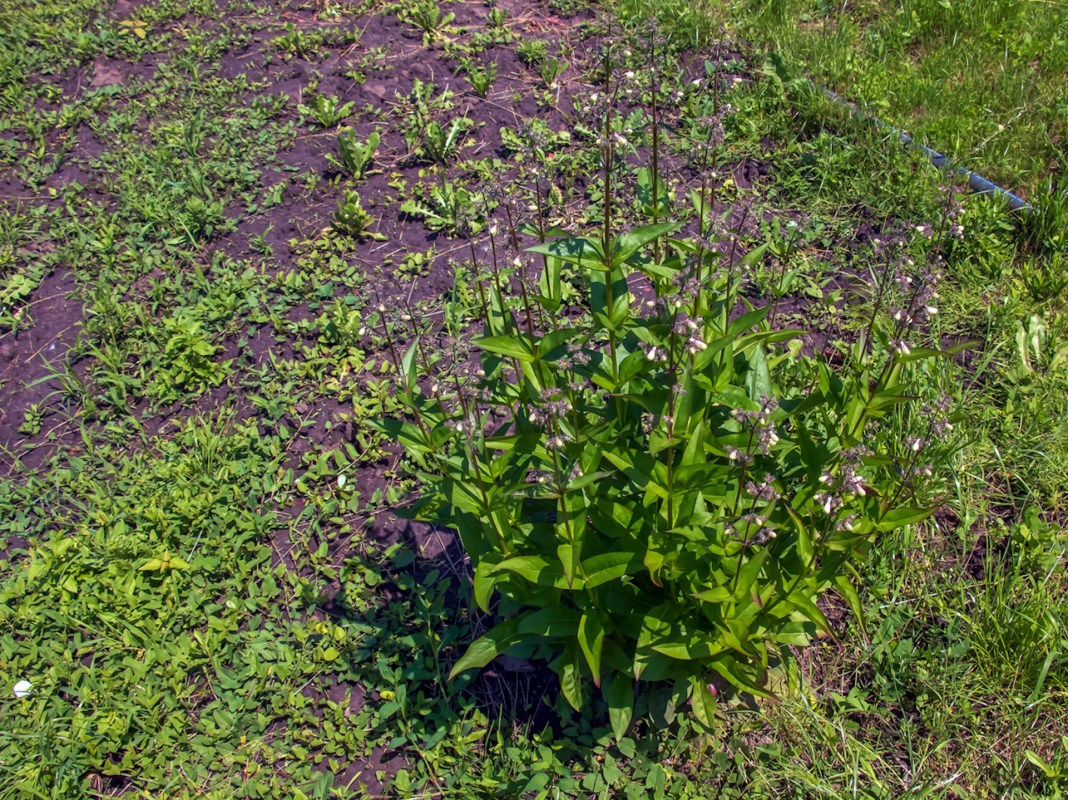Form, meet function.
One Redditor married these two concepts with a native plant lawn that is aesthetically pleasing and provides a practical solution to flooding from heavy rain.
"Here's the rain garden I posted yesterday a few hours after the rain stopped," they wrote in their post on the subreddit r/NoLawns. "The soil is healthy enough to absorb all that pooled water within a few hours. It drains so fully that the homeowners have a walking path through the center so they can experience it up close."

The original poster put in young plants — much of which were wildflowers — that should eventually grow to cover all the exposed mulch.
"These are much easier to establish as they require a lot less water, so even with this summer's drought I can rely on rainwater and the mulch to keep soil moisture in," they said of their plant selection.
Since this landscaping style has increased absorptive capabilities, it can save time and money on maintenance, conserve water, and save on water bills. Homeowners who switch from a monoculture lawn, even if it's just a partial replacement, can save up to $275 and 175,000 gallons of water a year.
Low-maintenance and eco-friendly alternatives like clover and buffalo grass can also provide a diverse habitat for pollinators, something that regular grass lawns are incapable of doing. Bees, butterflies, birds, and other pollinators are crucial to helping produce more plants and contributing to the health of fruits and vegetables.
These benefits have led to several examples of a more harmonious relationship with wildlife. One Redditor inadvertently attracted a flock of birds while trying to start their garden, while blueberries in a woman's native plant lawn attracted an unexpected guest in a box turtle.
As for the original post, several people were quick to applaud the success of the rain garden.
"Looks like it does exactly what it's designed to do — great job!!" one user commented.
"Love it! I have built several of these and love to see others with them," another shared.
Join our free newsletter for easy tips to save more, waste less, and help yourself while helping the planet.









